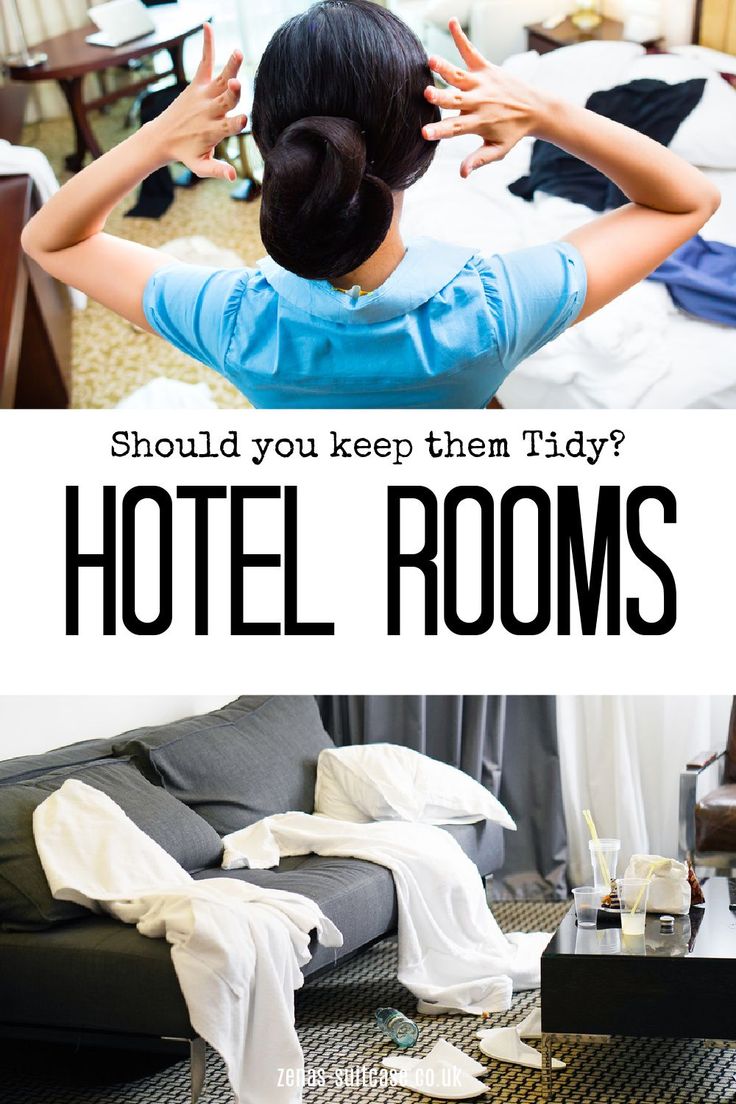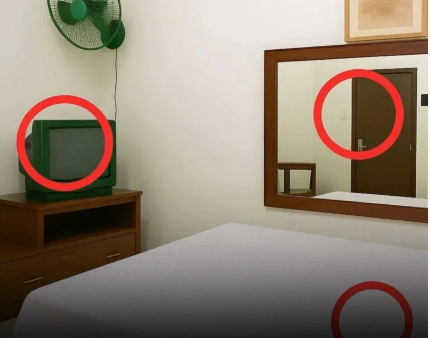Traveling is an exciting experience, whether it’s for business or pleasure. One of the most essential aspects of any trip is your accommodation, and hotels play a key role in ensuring your comfort and safety. However, not all hotels are created equal. Some may cut corners in ways that compromise guest safety, hygiene, and overall experience. In extreme cases, a hotel may even pose a threat to your well-being. If you find yourself staying in a hotel and notice certain red flags, it’s crucial to know when to cut your losses and check out immediately.
In this article, we’ll discuss three key things to look out for in a hotel. If you encounter any of these issues, it’s best to prioritize your safety, comfort, and peace of mind by leaving the premises. These three red flags may be indicative of bigger problems that could ruin your stay, so let’s dive into the signs that you should never ignore.
1. Poor Cleanliness and Hygiene Standards
Cleanliness is one of the most critical factors when it comes to choosing accommodation. Hotels should adhere to strict sanitation guidelines to ensure that guests are comfortable and safe. However, if you notice a lack of cleanliness upon checking into your room or during your stay, it’s a clear indication that the hotel may not take hygiene seriously, which could pose health risks.

Signs of Poor Cleanliness
- Dirty or Stained Sheets and Towels: Upon entering your room, check the bed linens and towels. If the sheets are stained, have visible dirt, or seem unwashed, it’s a significant red flag. You expect a fresh, clean bed in a hotel, and these issues could indicate poor housekeeping or a lack of proper cleaning protocols.
- Unpleasant Odor: A foul, musty smell in your room can be a sign of mold or mildew, which thrive in damp and humid environments. Mold can cause health problems, particularly respiratory issues, so it’s essential to address this issue immediately. An unpleasant odor could also indicate that the room has not been aired out and cleaned properly.
- Dirty Carpets or Furniture: If the carpets in your room are visibly stained, dirty, or have not been vacuumed in some time, it’s a sign that the hotel doesn’t prioritize cleanliness. The same goes for furniture, particularly if it looks worn out, sticky, or covered in dust. These conditions not only make the room uncomfortable but also signal that the hotel may neglect basic maintenance.
- Bathroom Sanitation Issues: The bathroom is a crucial area when it comes to cleanliness. If you find that the bathroom sink, toilet, or shower are dirty, with visible soap scum, mold, or grime, it’s time to check out. Hygiene in this area is paramount, and if the hotel fails to maintain cleanliness, it could lead to serious health concerns.
Why Poor Cleanliness is a Major Concern
Hotels that fail to maintain cleanliness put their guests at risk for various health problems. Dirty linens, unclean bathrooms, and unsanitary conditions can lead to skin infections, allergies, or even the spread of harmful bacteria. If the hotel cannot maintain basic hygiene standards, it’s likely that the rest of their services and operations are subpar, putting your overall well-being at risk.
What To Do
If you notice any of these cleanliness issues, it’s best to speak with the hotel staff immediately. If the issue isn’t resolved quickly or satisfactorily, consider checking out and finding alternative accommodations. Your health and comfort should always be the top priority.
2. Unsecured or Malfunctioning Hotel Infrastructure
Hotel infrastructure plays a crucial role in ensuring a safe and comfortable stay. Security and proper maintenance are key aspects of any hotel’s operation. If you notice any signs of unsafe infrastructure or malfunctioning systems, it’s a serious cause for concern. These issues can jeopardize not only your safety but also your peace of mind during your stay.
Signs of Unsafe Infrastructure
- Unreliable Locks and Security Measures: One of the most important aspects of any hotel room is security. If the door lock or keycard system isn’t functioning properly, you may be putting yourself at risk of theft or even physical harm. Broken or faulty locks make it easy for intruders to gain access to your room, and that is something you should never ignore. Additionally, check if there are adequate security measures like working safes, security cameras in hallways, or even visible hotel security personnel.
- Faulty Fire Alarms or Emergency Exits: When you’re staying at a hotel, you trust that emergency measures, such as fire alarms and emergency exits, will work in the event of a crisis. If you find that the smoke detector in your room is disabled, missing, or not functioning, or if the emergency exit routes are blocked, you should be extremely concerned. These deficiencies suggest that the hotel is not complying with safety regulations, putting guests at risk.
- Broken or Unstable Furniture: A broken bed frame, unstable desk, or damaged chair may seem like minor inconveniences, but they could pose serious safety hazards. If furniture is not properly maintained and has sharp edges or is at risk of collapsing, it could cause injury. Additionally, ensure that the bed linens are securely fastened and that no furniture is broken in a way that could affect your comfort or safety.
Why Malfunctioning Infrastructure is Dangerous
Malfunctioning infrastructure can directly affect your safety and well-being. A hotel room with inadequate security measures can leave you vulnerable to theft or harm. Broken fire alarms or blocked emergency exits make it impossible to react quickly during an emergency, putting your life at risk. Poorly maintained furniture can also cause injuries, ranging from minor cuts to more serious accidents. If the hotel is neglecting these critical aspects of your stay, it’s time to leave immediately.
What To Do
If you notice any security issues, malfunctioning alarms, or unstable furniture, it’s important to inform the hotel management right away. If the problems are not addressed immediately or cannot be resolved during your stay, you should consider leaving and finding alternative accommodations that prioritize guest safety.
3. Unprofessional or Hostile Hotel Staff
The quality of service you receive from hotel staff can make or break your experience. Hotel employees should be friendly, attentive, and committed to providing excellent customer service. However, if you encounter unprofessional, rude, or even hostile behavior from the hotel staff, it’s a significant red flag.
Signs of Unprofessional or Hostile Staff
- Rude or Dismissive Behavior: If the hotel staff is dismissive of your concerns, unhelpful, or openly rude, this is an immediate warning sign. The hotel’s staff represents the property’s standards, and their behavior can give you insight into how the management runs the establishment. In situations where staff members treat guests poorly, it’s unlikely that the hotel’s standards are up to par in other areas.
- Failure to Address Complaints: If you raise an issue, such as cleanliness problems, room malfunctions, or noise complaints, and the staff refuses to address the situation or dismisses it, that is unacceptable. Hotels are expected to resolve guest concerns in a timely and professional manner. A lack of responsiveness to complaints is a clear sign of poor management and a disregard for guest satisfaction.
- Unorganized or Disorganized Check-In Process: An inefficient or chaotic check-in process can be a sign of poor management. If the staff is unable to find your reservation, gives incorrect information, or is unorganized in handling check-ins, this can indicate broader systemic issues within the hotel.
Why Unprofessional Staff is a Red Flag
Unprofessional or hostile behavior from hotel staff is indicative of poor management and lack of care for guests. If staff members are unable to perform their jobs effectively or treat guests poorly, it may reflect the hotel’s broader lack of attention to detail. Poor customer service often correlates with a lack of cleanliness, safety, and attention to other critical aspects of the hotel’s operations.
What To Do
If you encounter unprofessional or hostile staff, try to escalate the issue to a manager or supervisor. If your concerns are still ignored or treated disrespectfully, it’s time to check out. No matter how comfortable or affordable the hotel is, staying at a place where you don’t feel welcome or safe is never worth it.
Conclusion: Your Comfort and Safety Should Be a Priority
Hotels are meant to be a safe, comfortable place where you can relax and enjoy your trip. However, if you encounter any of the three red flags discussed—poor cleanliness, malfunctioning infrastructure, or unprofessional staff—it’s essential to prioritize your well-being and check out immediately.
Your health, safety, and peace of mind are more important than saving money or enduring a subpar hotel stay. By staying vigilant and paying attention to these signs, you can ensure that your hotel experience is a positive one, contributing to an enjoyable and stress-free trip. If you encounter any of these issues, don’t hesitate to speak up and consider moving to a hotel that treats its guests with the care and respect they deserve.



